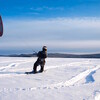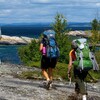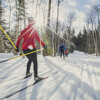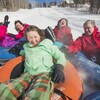
Ray Mears Explores Wabakimi
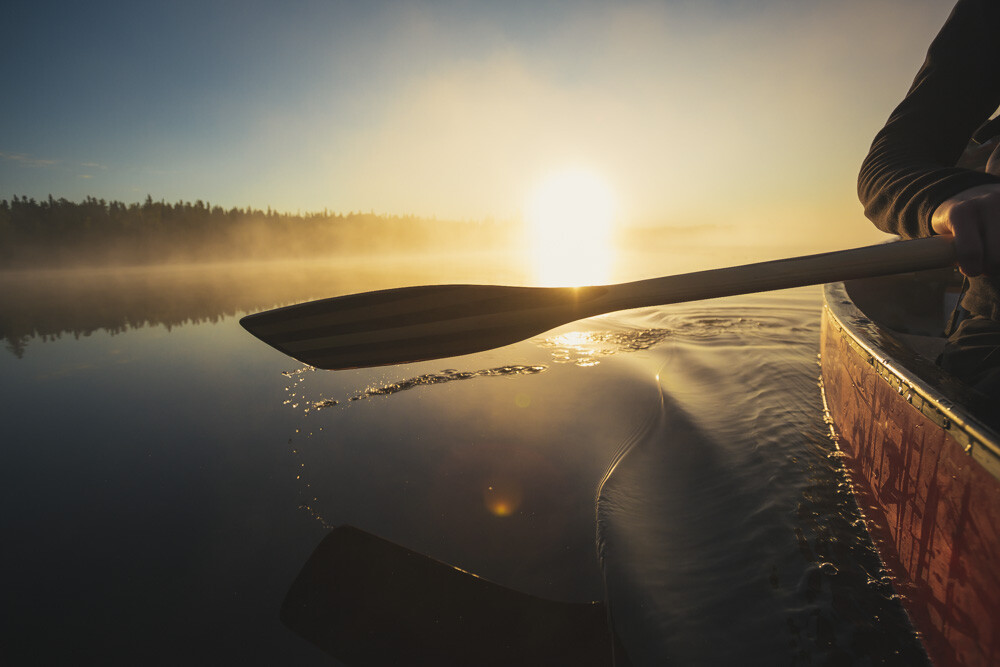
Note: This blog was used with permission from Ray Mears, world-renowned authority on Bushcraft and Survival, star of various television series including Tracks, World of Survival, and more, and founder of Woodlore, the UK's premier School of Wilderness Bushcraft. Read more of Ray's blogs at The Ray Mears & Woodlore Blog.
Canadian canoe journeys are always special they have a unique ability to purge the spirit of the unwanted static that accumulates in our technological lives. I am not sure why, whether it is the simplicity of the life as a canoeist, or the pristine quietude of the wilderness, perhaps it is the honest labour of muscles propelling you through the lakes and waterways. Whatever it is, the effect is to cleanse and rejuvenate the soul. So when I was asked if I could squeeze a late September reconnaissance expedition to North West Ontario into my schedule I took a crow bar to the fixtures in my diary.
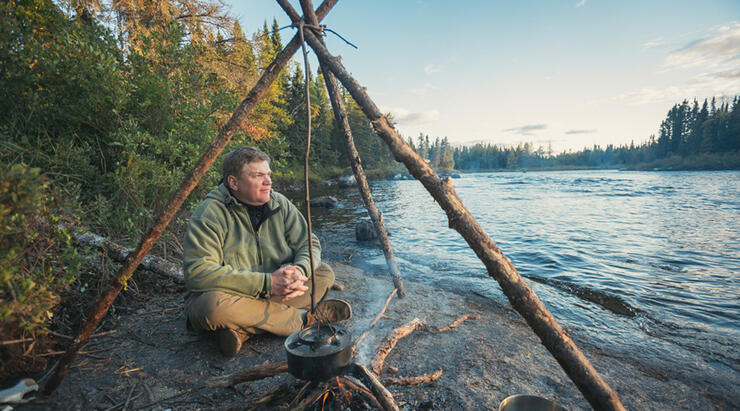
Having given my paddles a fresh lick of boiled linseed oil, and packed my outfit into old canvas canoe packs I set off. My journey would be in two parts, first a quick look at Wabakimi Provincial Park, followed by a more detailed navigation of the Kopka River Provincial Park, which runs along the southern boundary of Wabakimi. Joining me would be Becky Mason who as well as being an old friend is one of the most talented and influential paddlers in the world.
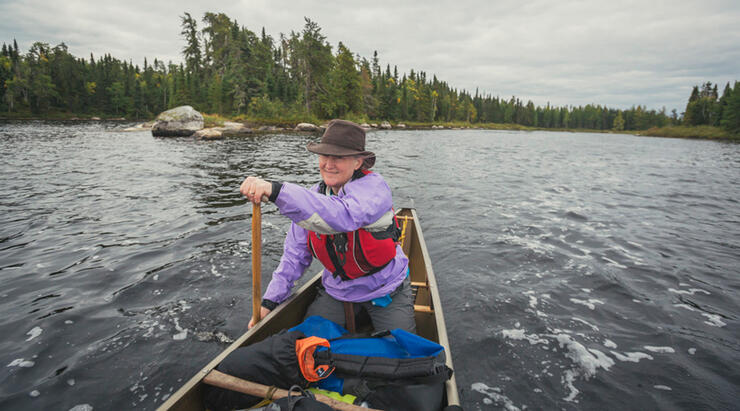
In fact the Mason family has had a legendary association with Canadian canoeing. This began with Becky's late father Bill Mason, who in addition to being an extraordinary paddler and keen naturalist, was also a brilliant artist and award winning documentary filmmaker. In complete contrast to the shallow over hyped celebrity legends of today, the Mason reputation was built upon real substance, delivered with the family hallmark of understatement. Bill's paddling films have inspired several generations of paddlers and continue to do so today, if you are not familiar with his work take a look at Waterwalker.
The journey to Northwest Ontario is surprisingly easy, the long portage across the Atlantic is accomplished in seven hours which, given the international time difference, means that I effectively arrive one hour after I set off. A short transfer at Toronto Pearson International and a 95-minute flight brings me to Thunder Bay, the gateway to North West Ontario.
As you fly into Thunder Bay you notice two things the cities proximity to the waters of mighty Lake Superior and the giant grain silos at the railhead, both speak of past industry. Like many Canadian cities Thunder Bay grew out of the fur trade, at one time the largest fur trade post in the world it was an essential staging post in the seasonal transfer of trade goods and fur pelts across the continent. When the fur trade declined the Canadian Pacific Railroad took over, transporting grain to the railhead for transfer to shipping on Lake Superior. Today Thunder Bay is a chic and desirable residence for young professionals having reinvented itself as a knowledge hub and centre for education, home to the Lake Head University. The historic waterfront that once bustled with trade in goods is now an upmarket marina with stylish restaurants. Overnighting in Thunder Bay is comfortable and takes the sting out of jet lag.
Before leaving Thunder Bay I took the opportunity to visit Fort William, a reconstruction of the great Northwest Company Trading Post of the same name. The Northwest Company was an independent fur trading company that competed with the Hudson's Bay Company until they merged in 1821. With an expert guide and living history enactment the story of the fur trade and Thunder Bay's involvement is really well explained. A high point for me was visiting the canoe building shop where many large fur trade canoes of birch bark have and continue to be built.
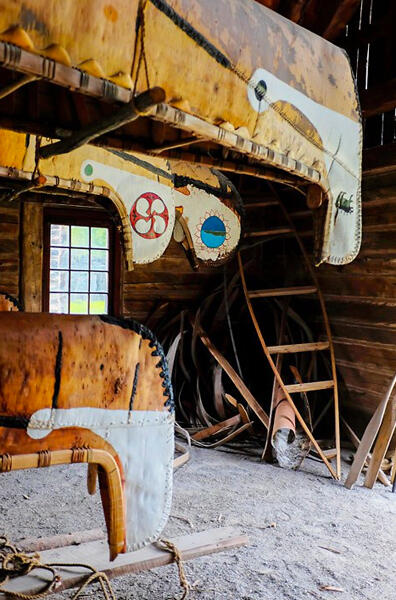
Almost as soon as you leave Thunder Bay you are in forest, the wonderful Boreal Forest, that stretches like a shawl around the top of our planet. Three hours by road, and a black bear sighting, and I arrive at the Wabakimi Outfitters. Here I am pleased to find a modern but rustic cabin well kitted out and very clean. This then is the kicking off point. Time to reorganise my equipment and pack for canoe travel. There is a slight chill in the air reminding man and beast that summer is now dealing her last hands of sunshine and warmth. At times like this I am methodical, I lay out my gear on the veranda to pack and repack, trying to anticipate potential problems and to organise my outfit accordingly. I am joined by Becky Mason making precisely the same preparations. Experience has taught both of us the value of preparation. Finally I am happy, my packs sit laden ready to go.
The first morning dawns with a stiff and surprisingly cold breeze, summer in Canada this year has been poor. No sultry Indian summer ahead perhaps even the chance of a hard frost. But this should come as no surprise this is the boreal forest after all. But there is one great plus, cold weather will mean no biting insects. We carry our packs to the dock choose our canoes, now it is a waiting game.
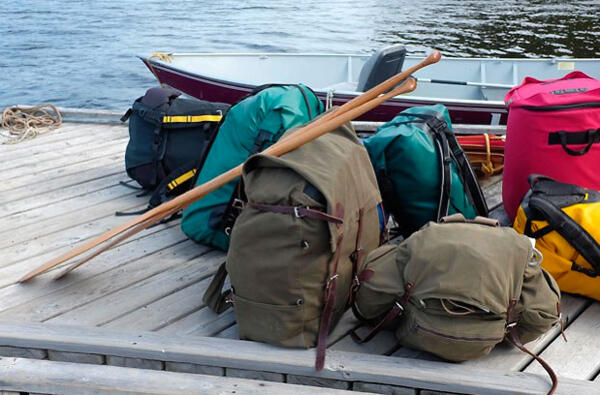
There is a rule when using aviation for wilderness travel, you must be ready to go, and the passenger does the waiting. And wait we did until with the efficiency of a Swiss watch the Turbo beaver arrives; we load up and take to the air. As we climb the forest stretches out in all directions…Magic.
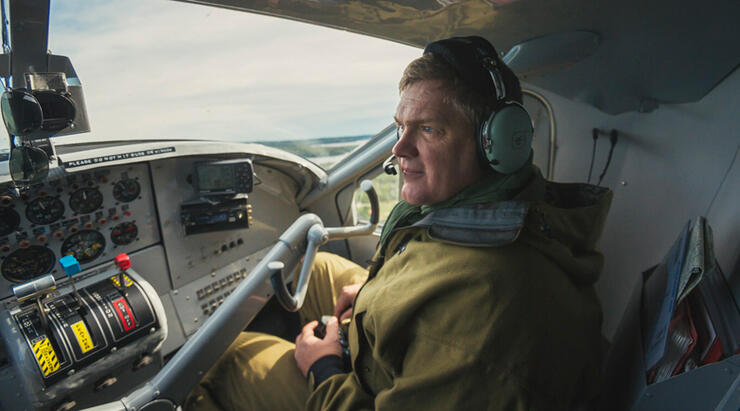
Having been dropped at the dock of a remote fishing outpost, I rig my canoe for bush travel, adjust the trim and set off to the first campsite. Paddling into strong wind the whole way it feels as though we are being tested by the forest. The wind soon blows away city demeanor and muscle memory kicks in. Paddling solo across big stretches of cold, dark water in strong wind is a sobering experience, there is risk, life is more edgy, there is a song on the wind that must be harmonised with. Failing to listen to this ancient tune can prove fatal. As I tune in to the flow I notice that the clouds are threatening rain and there is a foreboding gloom that foretells the approaching season end. In my mind I do a mental recap of my gear, yes even if it snows my outfit will cope, in good cheer I find my paddling rhythm.
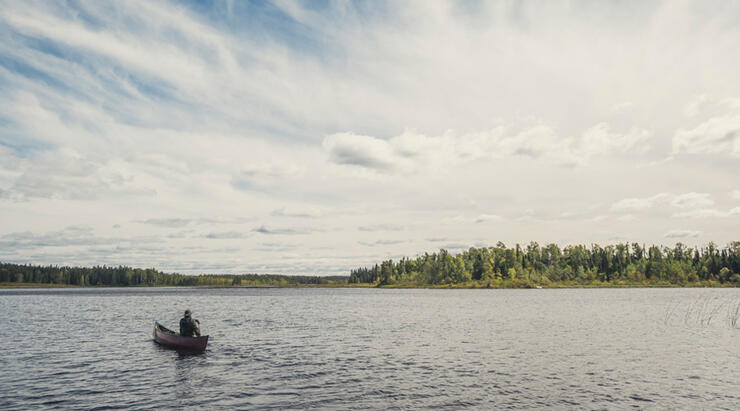
The first campsite is an important landmark in any canoe trip; it is now that my packing will settle into the shape it will take for the remainder of trip. Time to cook a bannock and gaze into the campfire.
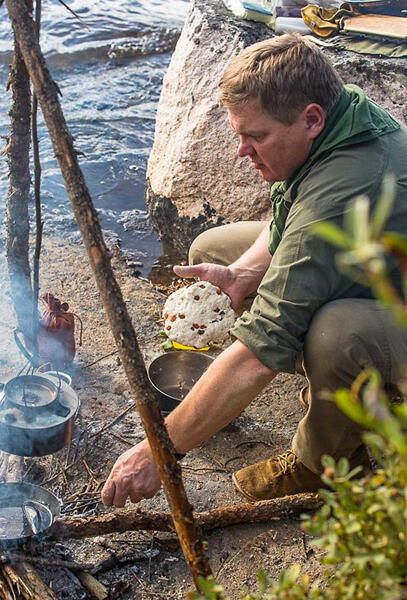
The next morning is brighter but still cold; today the wind is favourable for fifty percent of the time, as we head to our first white water. Rapids on remote journeys take on a different significance. This is no place for tomfoolery; the remoteness of the location demands the utmost respect. Even small rapids can be dangerous; here the rocks are sharp and jagged. But the flow is smooth and the waves favourable. It feels good to enjoy the ballet of the canoe breaking in and out of eddies.
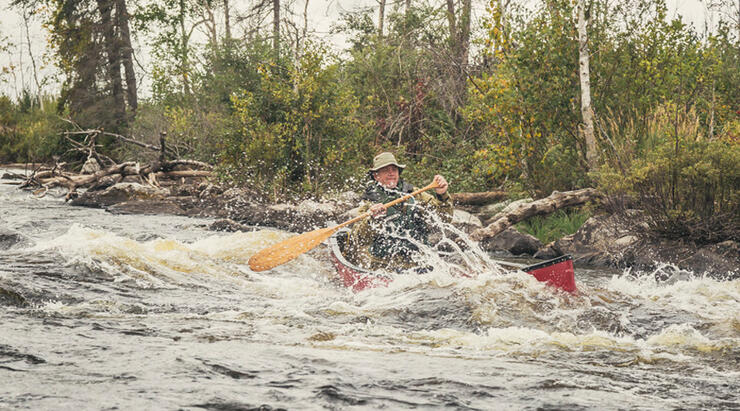
Located to the north west of Lake Nipigon, Wabakimi Provincial Park is wonderful, at 3,440 square miles it is Ontario's second largest provincial park and one of the largest boreal preserves on Earth. To a visitor it appears to be a pristine wilderness free of human influence. But little could be further from the case this area was historically occupied by the Anishinabe. The fact that we consider the landscape to be pristine is testimony to the great care with which they utilised the natural resources upon which they depended. When walking portage trails one walks ancient pathways established by the first nations. Today within the park there is a policy of clearing portage trails in the traditional manner and location. The trails are also not blazed or sign marked, all of which is in keeping with ancient tradition and reinforces the very special nature of the park.
Far sooner than I would have liked our journey in Wabakimi draws to its end, we camp beside the busy trans Canada railway near Armstrong Bridge. In the morning we exploit a gap in the flow of freight trains to portage our canoes along the track to the rail stop. No platform here, just a sign post at a jaunty angle and an old cabin for a waiting room.
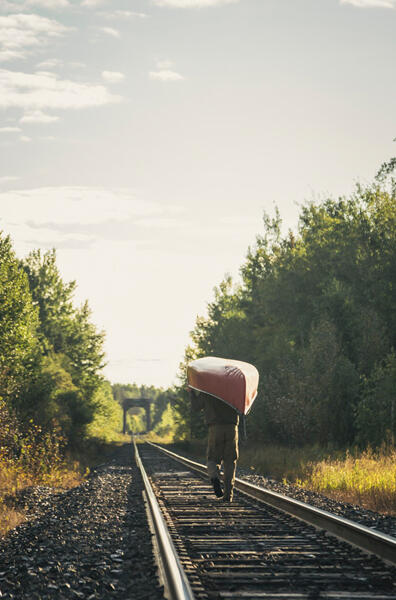
After a long wait the train pulls up, a freight car opens and quickly the canoes and packs are loaded. As I fish my ticket from a dry pouch I hear the surreal words, "Tickets please?" from the conductor. Three steps up the little portable stairs and like stepping into the plunge pool at a sauna I leave the wilderness and return to civilisation. Dining car, observation car tourists crossing Canada by rail and a first nation lady beading moccasins. Looking out of the window I see that where I have boarded a first nation man and wife are departing unloading bundles of lumber and sheet ply wood. I wonder if they are preparing to stay for winter? The train journey is comfortable, the rolling stock gliding through boreal splendor, soon the warmth takes over and I am lulled to sleep.
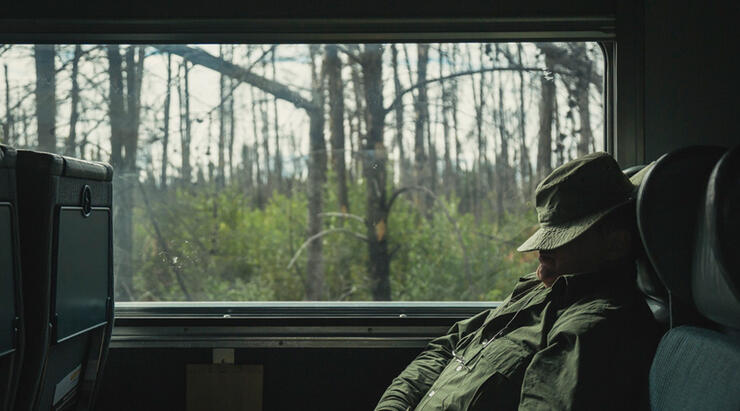
Back at the outfitters I clean up, replenish my food supplies and repack. A night in a bed seems strange, it is odd being indoors in some perverse way I long to be out in the chill breeze. In the morning our beaver arrives and away to the Kopka River. We are dropped beside a beach, as we paddle to shore to reorganise I see tracks on the beach. A large black bear had past east along the beach two days before, but much fresher tracks over printed that event, A moose cow and a calf also heading east and two woodland Caribou heading west followed by two wolves, all within the last few hours. Wonderful, wolves in my mind mean wilderness. The floatplane engine guns and in but a few seconds the plane is gone, the hush of the forest swallows us.
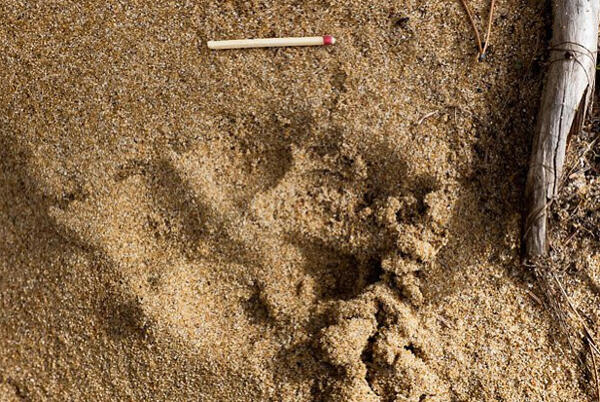
The Kopka River is beautiful, large wide sections are interspersed with short narrows, which in some cases can be run with care. At the first portage there are the wolf prints again, this time only seconds old, taking a moment to read the story it becomes clear that the wolf walked to the lip of the portage trail only minutes before, probably to see who was coming, and then turned back and vanished to the left of the trail. I have no doubt that we walked that trail under lupine scrutiny.
Stopping to spend a day at one campsite gives me time to practice old skills, to carve a paddle with axe and crooked knife to fillet some Northern Pike and taste of the land. Like all canoe journeys the travel has broken into a natural rhythm, with a new campsite to be found each day. No shortage of fire wood, plenty of blow down.
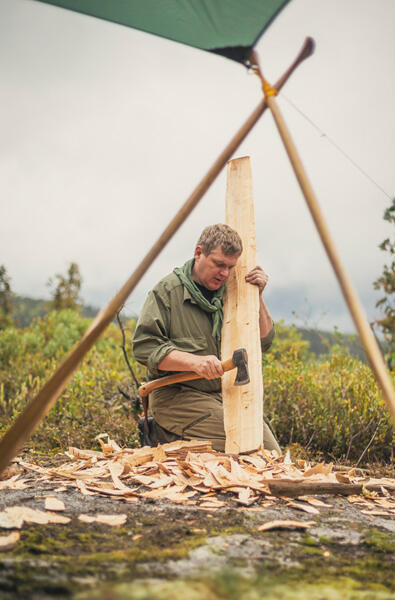
Becky is in her element, watching her graceful paddling is a joy. But on land too her experience reveals itself, I chuckle one morning as she sits comfortably in the rain to eat her breakfast, totally content in the small comfort of the dry her waterproof clothing provides.
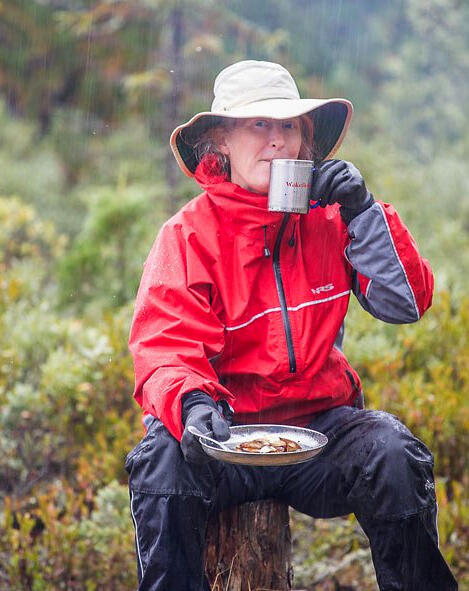
The camp is simple just a lightweight tarp and hike tents. After a few days we will slip fully into bush mode anointed by the rain, dried by the sun and wind. Calmed by the beauty and slowed by the thick forest. Only then will we be able to 'be there' and to forget the outside world. I love this experience it cleanses mind body and soul, I have to keep a diary otherwise I so totally lose myself in the moment that I forget what day it is.
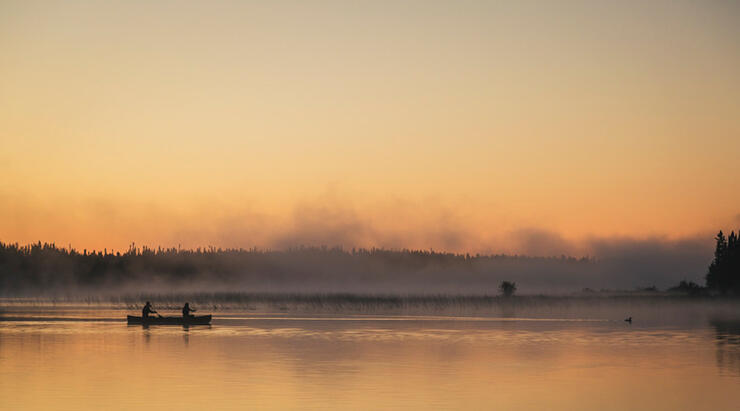
The final morning of travel I awake early to find mist on the water. At moments like this there is just one place to be, out on the water looking for wildlife relishing the perfect tranquility of the landscape, even the sound of water dripping from the paddle. At the end of this days paddling will be the last camp at a disused road from where we will be ferried back to civilisation. But that is tomorrow for now I shall enjoy the creeping snowberries on the portage trail, the huge stands of royal fern lining the rapids and the bald eagle circling overhead....
Ray Mears, 2014
Recommended Articles

March Break in Ontario
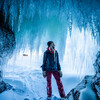
Plan Your Adventure
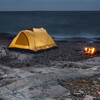
Crown Land Camping
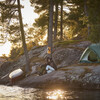
Tips for 2026 Camping Reservations
Explore Underground: Ontario Caves
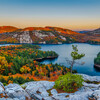
Natural Highs
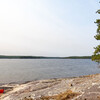
Discover Ontario’s Least Busy Parks
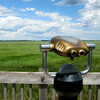
Ontario Birding Checklist

Family Day Weekend
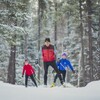
Rise and Glide
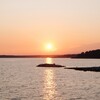
Visit Killbear Provincial Park
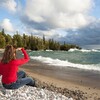
Attention Detroit
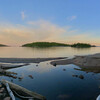
Explore Ontario’s Hidden Gems
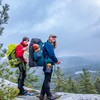
Hike The Best Trails
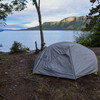
Insider’s Guide to Sleeping Giant
Winter Camping in Ontario
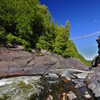
Ontario’s National Parks

Beach Camping in Ontario
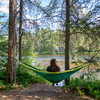
Windy Lake: Your Travel Guide
